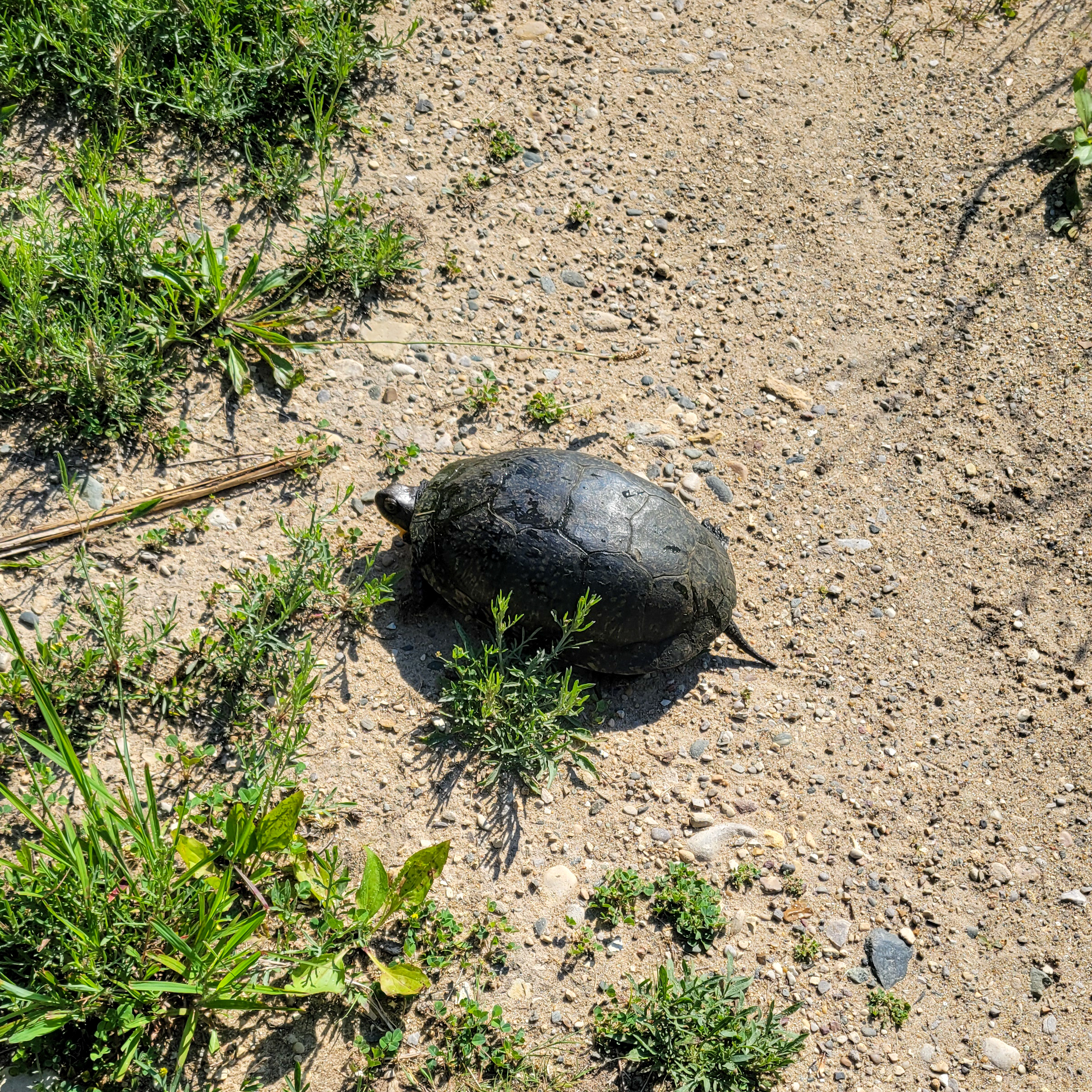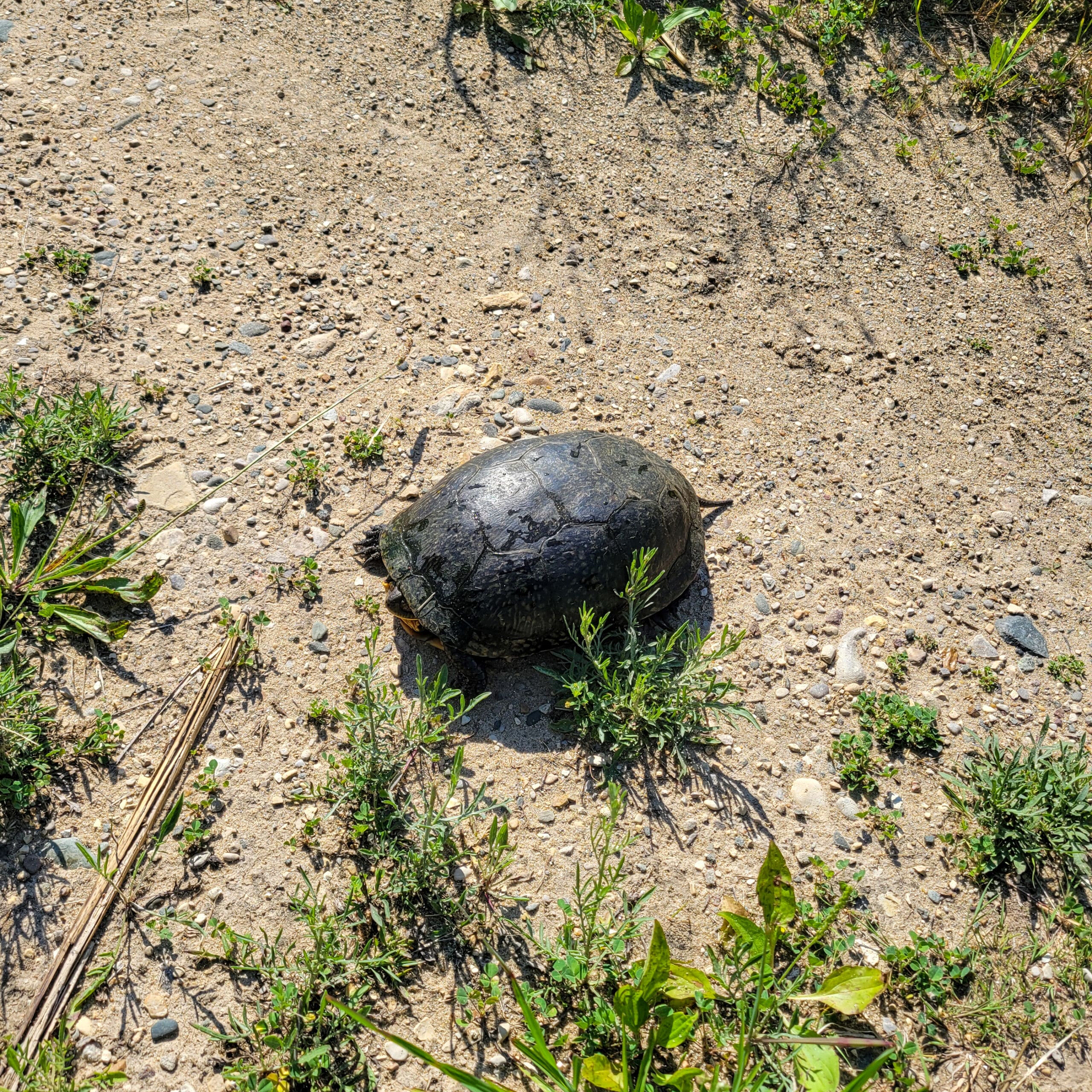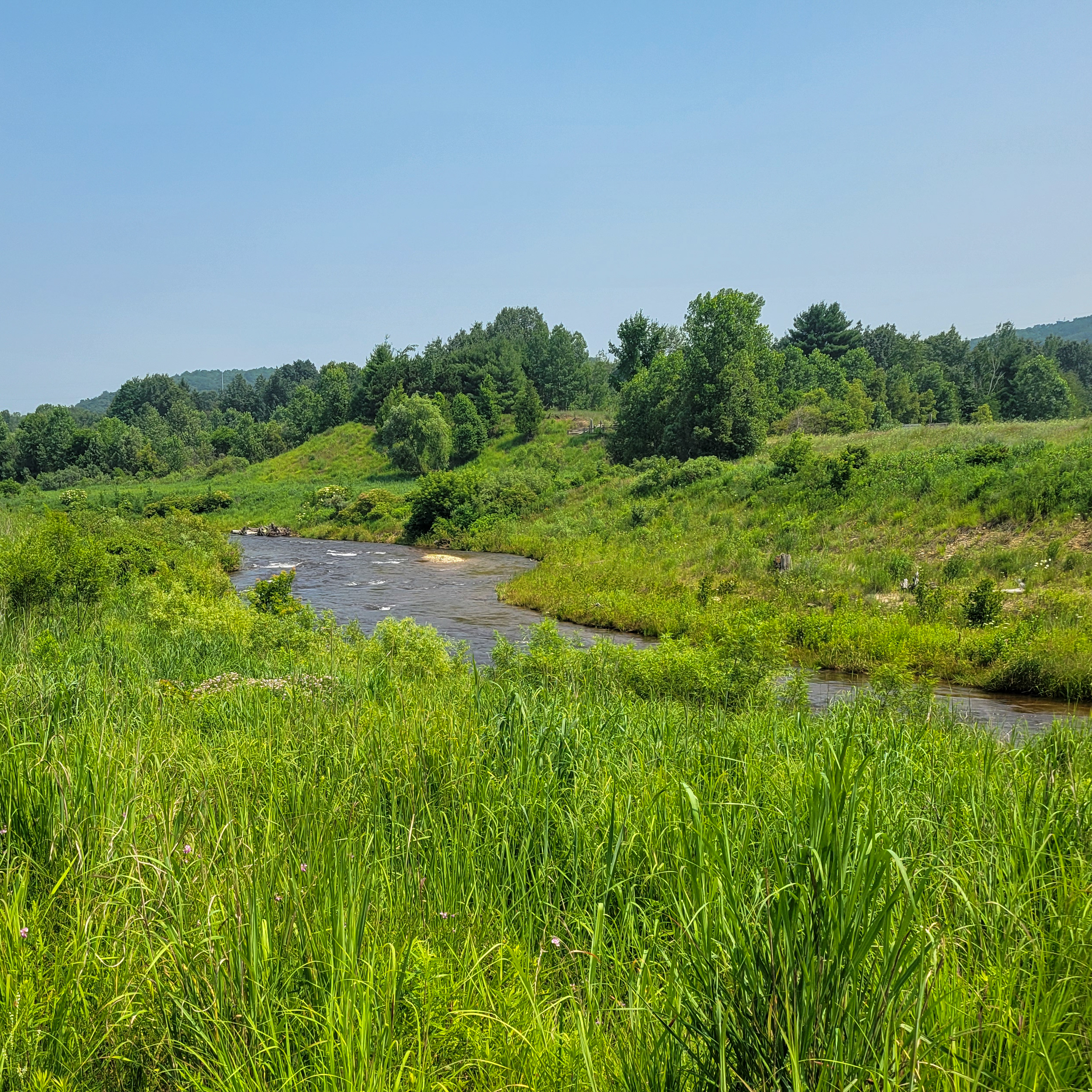Blanding’s Turtles are listed as a species of special concern in Michigan due to habitat loss and degradation. This species inhabits shallow, clean waters and adjacent uplands, making them especially sensitive to environmental changes and our rapidly developing landscapes.
Remarkably, the spot where Kmotorka encountered the turtle was once submerged – part of a section of the Boardman River dammed off for more than a century.
In the 2010s, CRA led the major restoration efforts throughout the Boardman River Watershed that included the removal of three dams, reconnecting 160 miles of rivers and tributaries that were fragmented by dams for 126 years. In the years following, the aquatic and upland ecosystems began to recover.
The return of species like the Blanding’s Turtle is a powerful sign of restoration in action, and a reminder of the positive impact that collective efforts can have on environmental health can have now and for generations to come.
These improvements not only benefit wildlife but also create a connected system of trails and rivers for people to explore and enjoy. And if you’re lucky, you might even have the chance to encounter a rare species in its natural habitat.
We’d like to extend a sincere thank you to our friends at HRM for bringing this interaction to light! HRM is a Michigan-based environmental services firm specializing in areas such as threatened and endangered species surveys, biological inventories, wildlife response, habitat mapping, design ang plan review, and wetland delineation and mitigation. Recognizing that environmental impacts are often unavoidable, HRM is committed to helping clients minimize and mitigate those effects. The firm provides scientifically grounded guidance to support responsible natural resource management while balancing the demands of community growth.



